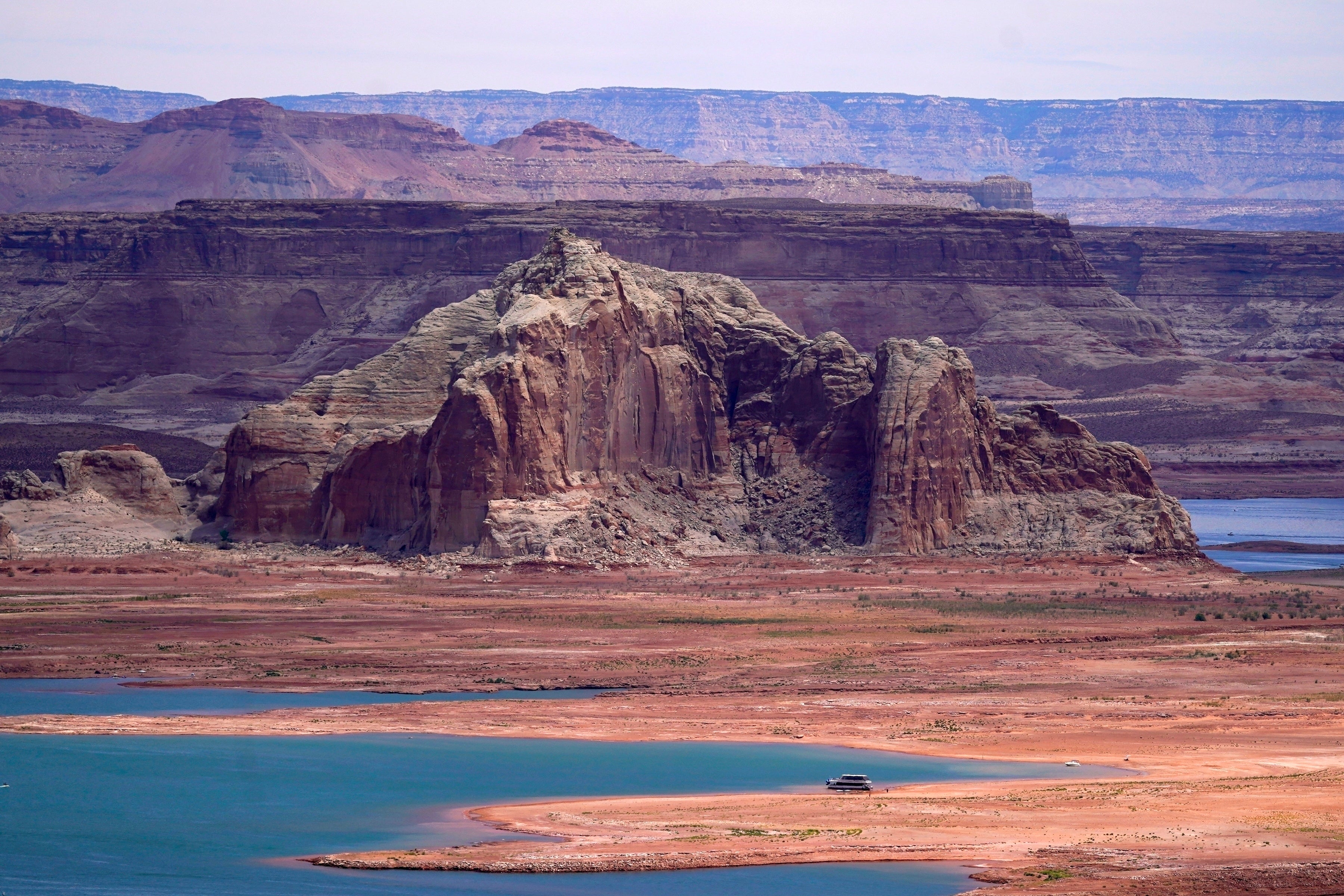Tribes say their future is at stake as they push for Congress to consider Colorado River settlement
Navajo officials are celebrating the signing of legislation outlining a proposed water rights settlement that will ensure supply from the Colorado River and other sources for three Native American tribes and more security for drought-stricken Arizona

Within the heart of the Navajo Nation and in the shadow of the sandstone arch that is the namesake of the tribal capitol, a simple greeting and big smiles were shared over and over again Friday as tribal officials gathered: “Yá‘át’ééh abíní!”
It was a good morning indeed for Navajo President Buu Nygren as he signed legislation in Window Rock, Arizona, outlining a proposed water rights settlement that will ensure supplies from the Colorado River and other sources for three Native American tribes — as well as more security for drought-stricken Arizona.
The signature came a day after the tribal council voted unanimously in favor of the measure. It also was approved this week by the San Juan Southern Paiute and Hopi tribes.
Now, the three tribes will be working to get Congress’ approval for what could be the costliest water rights settlement in U.S. history.
“We’ve got a tall, tall task,” Nygren told the crowd. “But we’re going to get it done.”
The Navajos have one of the largest single outstanding claims in the Colorado River basin and officials say the needs across the territory exceed the proposed price tag of $5 billion.
Nearly a third of homes in the Navajo Nation — spanning 27,000 square miles (70,000 square kilometers) of Arizona, New Mexico and Utah — don’t have running water. Many homes on Hopi lands are similarly situated, and the San Juan Southern Paiute have been left for generations without a reservation — or water rights — to call their own.
Tribal leaders told The Associated Press in an interview Friday that the proposed settlement is about more than just a fundamental right to water, but marks a new path for cooperation among Native American tribes as they assert rights to harness natural resources and plan for the future amid the worsening effects of climate change.
While efforts to negotiate an agreement have been generations in the making, the leaders said the ongoing drought and the effects of the coronavirus pandemic were among the challenges that drove the latest round of talks.
Navajo Council Speaker Crystalyne Curley said Friday that the importance of having clean, reliable sources of drinking water became even more apparent during the pandemic. She talked about Navajo families who have to drive many miles to pick up water and haul it home and making due with just several gallons a day.
Other non-tribal parties to the settlement must still approve the measure, but tribal officials and their attorneys are hoping that discussions in Congress are well underway before the November election.
Congress has enacted nearly three dozen tribal water rights settlements across the U.S. over the last four decades. According to the U.S. Interior Department, federal negotiation teams are working on another 22 agreements involving dozens of tribes.
Bookmark popover
Removed from bookmarks